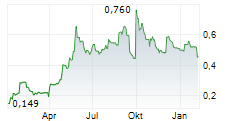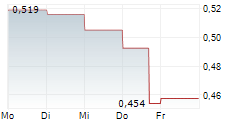Gothenburg, August 25, 2025 - Elicera Therapeutics AB (publ), a clinical stage cell and gene therapy company developing next generation cancer treatments based on oncolytic viruses and CAR T-cell therapies, armed with immune-activating properties via the company's commercially available iTANK platform, clarifies today that the ongoing patent application for the company's iTANK platform in the United States is still under examination by the United States Patent and Trademark Office (USPTO).
The Board of Appeals at the United States Patent and Trademark Office (USPTO) issued a decision on September 8, 2025, regarding the company's appeal of the examiner's decision to reject the patent claims in the U.S. patent application concerning the company's iTANK platform. The Board of Appeals chose to uphold the examiner's decision to reject the patent claims.
The company's Swedish patent attorney, Henrik Sjölander at Barker Brettell Sweden AB, comments on the decision: "The U.S. attorney and I do not agree with the conclusions of the Board of Appeals, which we believe are based on a hindsight assessment of the claimed invention. However, together with the company, we have reviewed several possible paths forward and developed a strategy to continue pursuing patent protection for the iTANK platform in the U.S. following the Board's decision."
The iTANK platform is already patented in Europe and China, where the respective patent offices have deemed the invention patentable. The company's CEO, Jamal El-Mosleh, is therefore optimistic that the U.S. Patent and Trademark Office will ultimately reach the same conclusion.
For further information, please contact:
Jamal El-Mosleh, CEO, Elicera Therapeutics AB (publ)
Phone: +46 (0) 703 31 90 51
jamal.elmosleh@elicera.com
Certified Advisor
Mangold Fondkommission AB
About the iTANK-platform
The iTANK technology platform has been developed for arming and enhancing CAR T-cells to meet two of the major challenges CAR T-cell therapies face in the treatment of solid tumors: a very diverse set of tumor antigen targets and a very hostile tumor microenvironment. The technology is used to incorporate a transgene into CAR T-cells encoding a neutrophil activating bacterial protein (NAP). NAP secreted from the CAR(NAP) T-cells has been shown to be able to enhance the function of CAR T-cells and importantly activating a parallel bystander immune response against the cancer via CD8+ killer T-cells. This is expected to lead to a broad attack against most antigen targets on cancer cells. The iTANK platform is used to enhance the company's own CAR T-cells but can also be universally applied to other CAR T-cell therapies under development. Proof-of-concept data was published in Nature Biomedical Engineering in April 2022. The publication, titled "CAR T cells expressing a bacterial virulence factor triggers potent bystander antitumor responses in solid cancers" (DOI number: 10.1038/s41551-022-00875-5) can be found here: https://www.nature.com/articles/s41551-022-00875-5. More information about iTANK platform is available here: https://www.elicera.com/technology
About Elicera Therapeutics AB
Elicera Therapeutics AB (publ) has developed the patented gene technology platform iTANK that enables the arming of new and existing CAR T-cell therapies targeting aggressive and relapsing cancer forms. Elicera Therapeutics thereby addresses a well-defined and vast market. The company's CAR T-cell therapies have shown a potent effect toward solid tumors which are recognized as particularly difficult to treat and constitute the majority of cancer cases. The company addresses a global multibillion market in cell therapy through its offering of non-exclusive licensing of the iTANK-platform to companies in the pharmaceutical industry. Elicera Therapeutics has four internal development projects in immune therapy that separately have the potential to generate substantial value through exclusive out-licensing agreements. The company's share is traded on Nasdaq First North Growth Market. For additional information, visit www.elicera.com.


